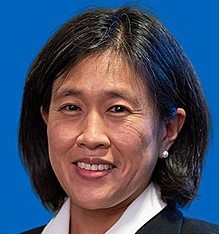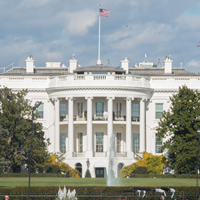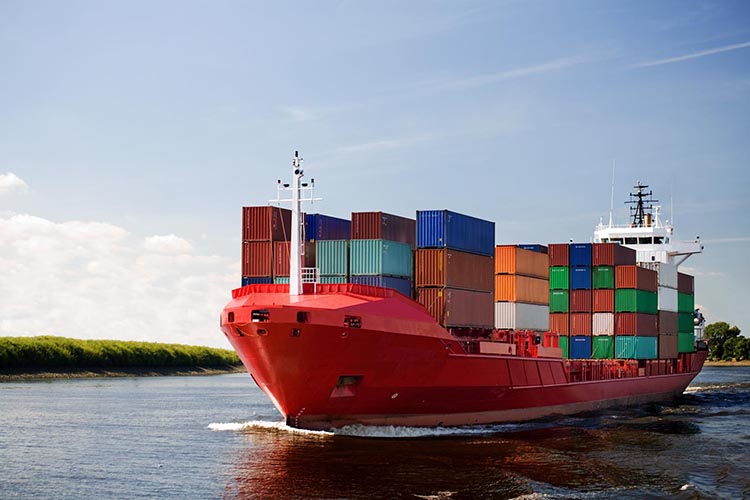
FTZ’ine February 2021
February 2, 2021
FTZ’ine April 2021
March 31, 2021Trade Takes A Back Seat
We understand there is still a pandemic going on. Even so, with international trade likely a key part of the global economic recovery, it was disappointing to learn last month that trade did not make the list of President Biden’s top priorities.
That is not to say that nothing happened in the world of trade in February. President Biden nominated Katherine Tai to fill the role of United States Trade Representative, and her confirmation is expected shortly. The World Trade Organization welcomed a new Director-General from Africa.
Britain and the EU are trying to work out the kinks in a complicated Brexit trade arrangement.
Despite not being named a public priority, the White House did take on some major trade initiatives during the month. President Biden reinstituted Section 232 tariffs on aluminum from the United Arab Emirates, signaling his willingness to use trade remedy tariffs to achieve policy goals. The President also announced a sweeping Supply Chain initiative targeting ways to restore American capabilities in industries like pharmaceutical manufacturing where foreign-trade zones play a key role.

Top Story: New USTR Pick
Tech Tip
The new e214 amendment process has been in production since Sept 2020, and like many things in 2020, it was not without it’s challenges. FTZs across the country are still reporting a significant delay in the time between submitting a Post Admission Correction (PAC) request and receiving an indication back if the request is approved (JAP message) or denied (JDE message.)
Some FTZs are still being told that their port officers are not able to find specific PAC requests. These zones are being asked to send an email with the admission number to help the port find the appropriate messages for action. Some ports are also asking for that courtesy email to include details about the PAC for evaluation of the approval, even though the PAC itself would already contain all the information needed.
CBP HQ was made aware of this situation during the recent NAFTZ Virtual Legislative Summit, and the FTZ’ine will keep you informed as we learn more. If you are having trouble with your admissions or PAC, please contact us at Info@iscm.co.


Trade Doesn’t Make Cut For White House Priorities
Aluminum Becomes First Major White House Trade Test


WTO Formally Elects New Director General
New Supply Chain Initiative Could Foretell Trade Tariffs

FTZ Board Activity
- Miraclon Corporation received authorization of production activity for flexographic/aluminum printing plates and direct/thermo imaging layer film within FTZ 106 in Weatherford, Oklahoma. MORE
- Juno Therapeutics, Inc. submitted a notification of proposed production activity for biopharmaceuticals within FTZ 5 in Bothell, Washington. MORE
- XPO Logistics submitted a notification of proposed production activity for wearable electronic communication/data device kitting within FTZ 72 in Clayton, Indiana. MORE
- Bosch Security Systems, LLC submitted a notification of proposed production activity for surveillance, detection, evacuation, and management systems within FTZ 38 in Greer, South Carolina. MORE
- Celgene Corporation submitted a notification of proposed production activity for biopharmaceuticals within FTZ 49 in Warren and Summit, New Jersey. MORE
- Deepwater Riser Services received authorization of limited production activity for offshore drilling riser systems and equipment within FTZ 279 in Houma, Louisiana. Production was authorized subject to a restriction requiring Kevlar straps for fins be admitted to the zone in privileged foreign status. MORE
- Zinus USA Inc. received authorization of production activity for foam bedding within FTZ 26 in McDonough, Georgia. MORE
- Eastman Chemical Company submitted a notification of proposed production activity for plastics within FTZ 204 in Kingsport, Tennessee. MORE
- Enovix Corporation submitted a notification of proposed production activity for lithium-ion metal batteries within FTZ 18 in Fremont, California. MORE
- Coating Place, Inc. received authorization of production activity for pharmaceuticals within FTZ 266 in Verona, Wisconsin. MORE
- Teijin Carbon Fibers, Inc. received an extension of the rebuttal comment period for its application of production authority within FTZ 38 in Spartanburg County, South Carolina. MORE
- Celgene Corporation submitted an application for subzone status for its facilities within FTZ 49 in Warren and Summit, New Jersey. MORE
- Tricida Inc. received authorization of production activity for pharmaceutical products within FTZ 176 in Rockford, Illinois. MORE
- Wacker Polysilicon North America, LLC submitted a notification of proposed production activity for hydrophilic fumed silica within FTZ 134 in Charleston, Tennessee. MORE
- PPC Broadband, Inc. received authorization of limited production activity for fiber optic cables within FTZ 90 in Dewitt, New York. Production was authorized subject to restrictions requiring that tight buffered fiber be admitted to the zone in privileged foreign status and that aramid yarn, swellcoat blockers or equivalent be admitted to the zone duty paid. MORE
- Port Arthur LNG, LLC received approval to operate its facility in Arthur and Jefferson County, Texas as Subzone 116F. MORE
- West Virginia Economic Development Authority submitted an application to reorganize FTZ 240 under the alternative site framework in Martinsburg, West Virginia. MORE
- Bauer Manufacturing LLC, d/b/a NEORig submitted a notification of proposed production activity for water well drilling rigs within FTZ 265 in Conroe, Texas. MORE
- Abbott Laboratories received approval to expand Subzone 22F in Itasca, Illinois. MORE
- AbbVie, Inc. submitted a notification of proposed production activity for pharmaceutical products within FTZ 22 in North Chicago and Lake County, Illinois. MORE

Trade Takes A Back Seat
We understand there is still a pandemic going on. Even so, with international trade likely a key part of the global economic recovery, it was disappointing to learn last month that trade did not make the short list of President Biden’s current priorities.
That is not to say that nothing happened in the world of trade in February. President Biden nominated Katherine Tai to fill the role of United States Trade Representative, and her confirmation is expected shortly. The World Trade Organization welcomed a new Director-General from Africa. Britain and the EU are trying to work out the kinks in a complicated Brexit trade arrangement. Despite not being named a public priority, the White House did take on some major trade initiatives during the month. President Biden reinstituted Section 232 tariffs on aluminum from the United Arab Emirates, signaling his willingness to use trade remedy tariffs to achieve policy goals. The President also announced a sweeping Supply Chain initiative targeting ways to reshore American capabilities in industries like pharmaceutical manufacturing where foreign-trade zones play a key role.

